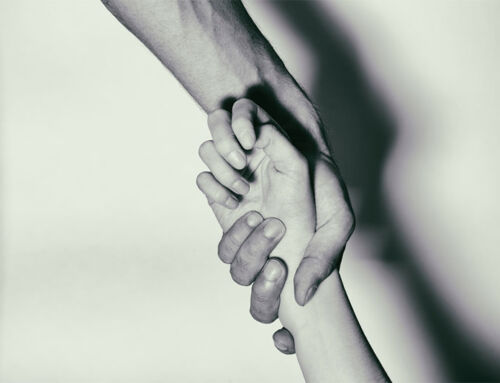Grief is one of the most powerful feelings we can experience.
Grief doesn’t come by itself. This feeling can bring with it feelings of anxiety, depression, fear, sadness, and other negative emotions. Additionally, grief brings back unresolved feelings from past deaths. This makes each new death a new experience while also multiplying the sorrow that was held inside of us.
The deep emotion associated with grief can make it dangerous but necessary when you’re in recovery. Mourning is also associated with death, but the truth is these feelings can also be felt when a relationship, job, or period of time ends. A change like moving, graduating, losing a job, or a traumatic experience can also cause these intense feelings.
The stress that comes from grief can leave people in recovery vulnerable to a relapse. Being able to process grief will help lead to long-term benefits to your emotional health and your recovery as well. Read on to learn more!

Understanding Grief
There are 5 stages of grief, and each stage is understood as a different defense mechanism that is used to shield ourselves from difficult situations we find ourselves in. These stages include:
- Denial: This is when someone is unable to accept or process the situation. This may be more prominent in sudden or unexpected deaths.
- Anger: Sadness and fear is replaced with anger in the wake of loss.
- Bargaining: This could also be known as the “I wish I could’ve done more/said more” stage. Guilt is commonly associated with these thoughts.
- Depression: This can look different for each person. Some people could be isolated and sad, while others could feel a deep sense of loneliness in the world.
- Acceptance: This involves acknowledging the situation and being able to move on while still having respect and appreciation for the memory of the individual.
There can be feeling of loss during sobriety. When you quit drinking or using drugs, you may mourn the change. It is likely that you have experienced some or all of these emotions during addiction and recovery for your drug of choice. The same can be said when you grieve the loss of a loved one.
It’s also important to point out that the stages of grief don’t always occur in order. People grieve differently.
Being aware of our own grieving processes can help you know when you need help from yourself or others. You can become more aware of your grieving process by going to individual or group therapy, journaling, and meditation. The more you explore your grief, the more aware you become of the emotions that can derail your life.
Preventing Relapse
Take a moment to think about what situations have triggered you in past grieving experiences. Some people could associate burials with drug use, especially if the other people there are taking part too.
If you’ve experienced this in the past, think about ways you can make the situation safer for you. This could be going to a meeting with a sober friend, telling people at the event that you’re in recovery, or limiting your time at these kinds of events. It’s normal to feel discomfort from these suggestions, but there are many other kinds of solutions as well.
Part of your recovery is finding ways to work through hard times safely. Maybe you don’t even attend the event so you can find your own way of mourning. Some situations can simply be too risky for your sobriety. Whatever the case may be, just know that these kinds of decisions are meant to protect ourselves, and you are worthy enough to be protected.
You don’t need to be alone while you grieve. Trusting others and reaching out when you need help are important skills to have when you’re in recovery. You may feel uncomfortable when you reach out for help, but your support network is there for you and they want to see you succeed in life.

Overcoming Loss
Death can seem unfair, and oftentimes it is. When a life is cut short, it can feel like that person’s potential was wasted. Death makes us think about our own timeline, which can make many people feel anxious when they think about it.
When someone passes, it’s important to consider the positive things we received from them. Think about what they did for you and what that meant.
When someone dies, we want to find the reason for it even if it’s lacking, and as a result, we can begin to blame ourselves for the death. We may never know how much we impact the life of someone who dies, but we can trust our memories of them and what we felt about them when they were here.
Even though death is difficult, we owe it to those that have passed and to ourselves to acknowledge the things we have given to each other and what those gifts truly meant.
Your Road to Recovery Starts Now.
Give us a call or send us an email and an admissions counselor will be in touch to answer all of your questions.
310 E Dupont Rd, Fort Wayne, IN







